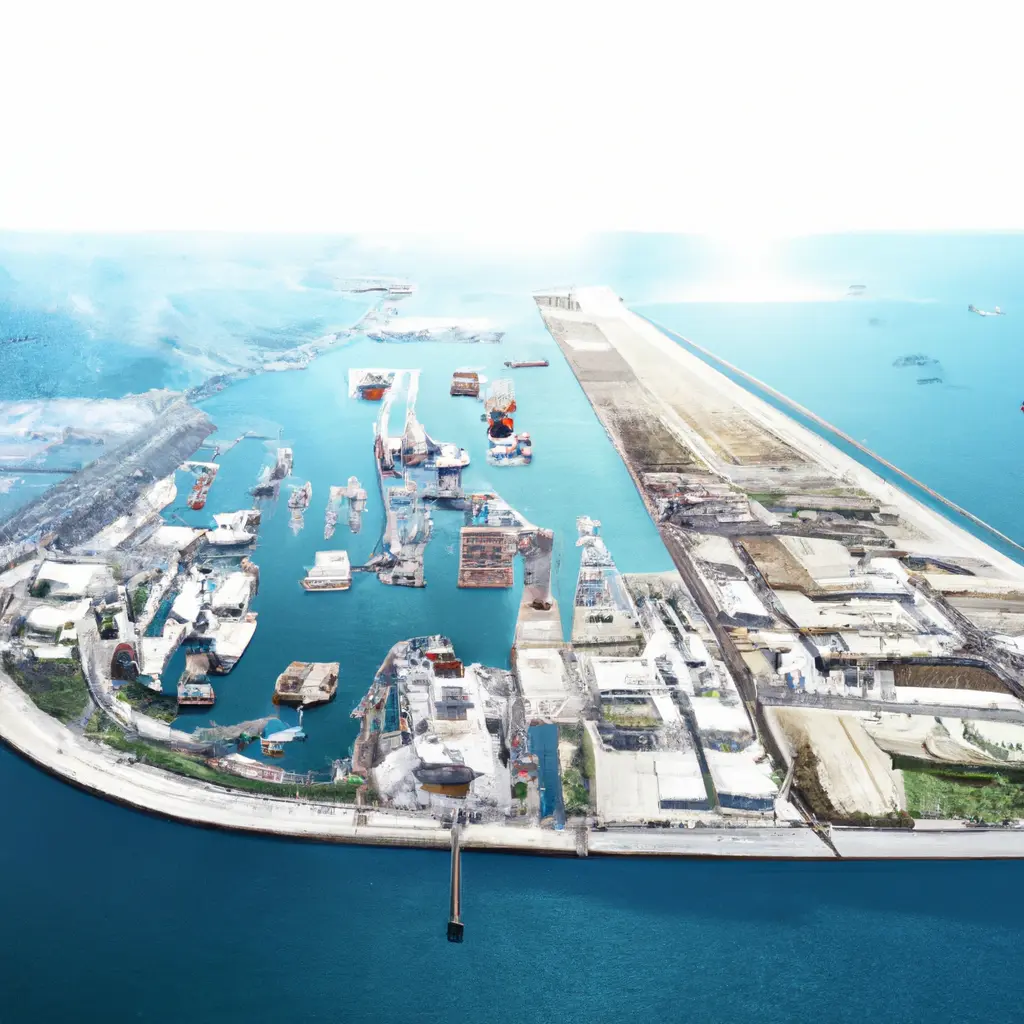The authority of Thailand's industrial zone is partnering with 6 companies to explore the use of hydrogen.

Published: August 29, 2023, at 05:00
In an aerial photo of the Map Ta Phut industrial zone and its seaport in Rayong, Thailand's Industrial Estate Authority (IEAT) is collaborating with six Thai and Japanese companies to jointly explore hydrogen fuel in the Map Ta Phut and Smart Park industrial zones in Rayong, as part of efforts to combat climate change.
The Map Ta Phut industrial zone covers an area of 6,949 rai, while the Smart Park, which spans 1,383 rai, is being developed to support the S-curve industry in the Eastern Economic Corridor. "This project aims to help Thailand achieve its carbon neutrality goals and support investors looking to utilize electricity and transportation based on clean energy," said Virish Ammarapala, governor of IEAT.
Mr. Virish spoke while signing a joint research agreement with companies Bangkok Industrial Gas Co, PTT Plc, Thai Takasago Co, Hitachi Zosen Corporation, Toyota Motor Thailand, and Toyota Tsusho (Thailand). IEAT announced in 2021 the development of infrastructure to support the growth of renewable energy, including hydrogen, solar energy, and biomass, in the Map Ta Phut and Smart Park industrial zones.
To transition to clean energy, authorities must study the types of technologies and business models that promote the efficient use of energy, as well as investment issues. IEAT has previously announced plans to import hydrogen for use in the transportation and logistics sectors at industrial complexes, including Smart Park.
1 May 2025
13 May 2025
14 May 2025
Mr. Virish expects that carbon dioxide emissions in Smart Park will be 73% lower than in other industrial zones that rely on electricity primarily generated from fossil fuels from the state grid. Authorities are striving to use clean energy, especially after Thailand announced at the 26th UN Climate Change Conference in Glasgow in 2021 more active measures to combat climate change and the goal of achieving carbon neutrality, a balance between carbon dioxide emissions and its absorption, by 2050.
IEAT also promotes the development of an economy based on bio-, circular, and green (BCG) concepts to help the country achieve its goals. BCG, declared a national task, encourages producers to use new technologies to add value to their products while simultaneously minimizing environmental impact.
Did you like the content of this article?
Comment
Popular Offers

Subscribe to the newsletter from Hatamatata.com!
Subscribe to the newsletter from Hatamatata.com!
I agree to the processing of personal data and confidentiality rules of Hatamatata














